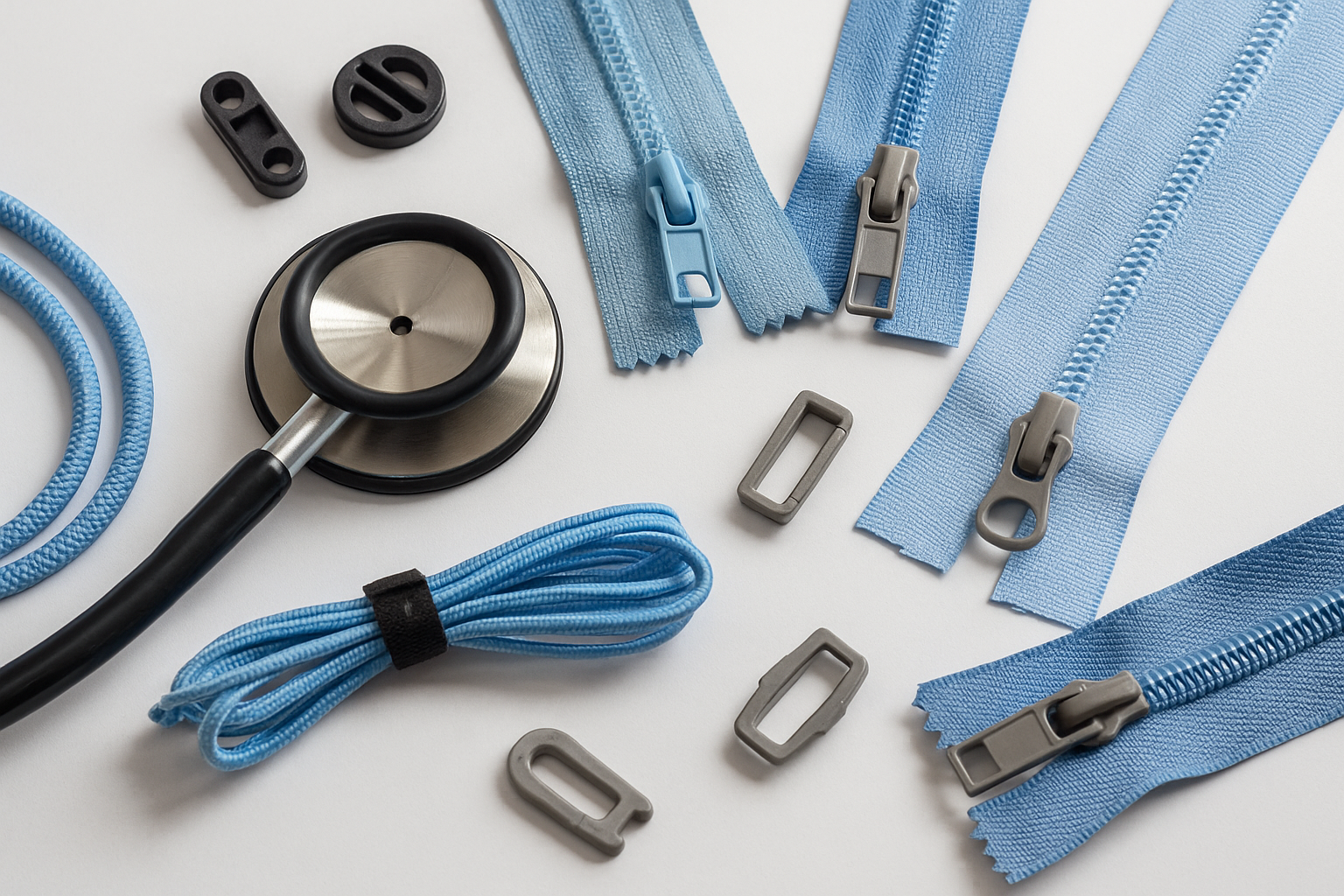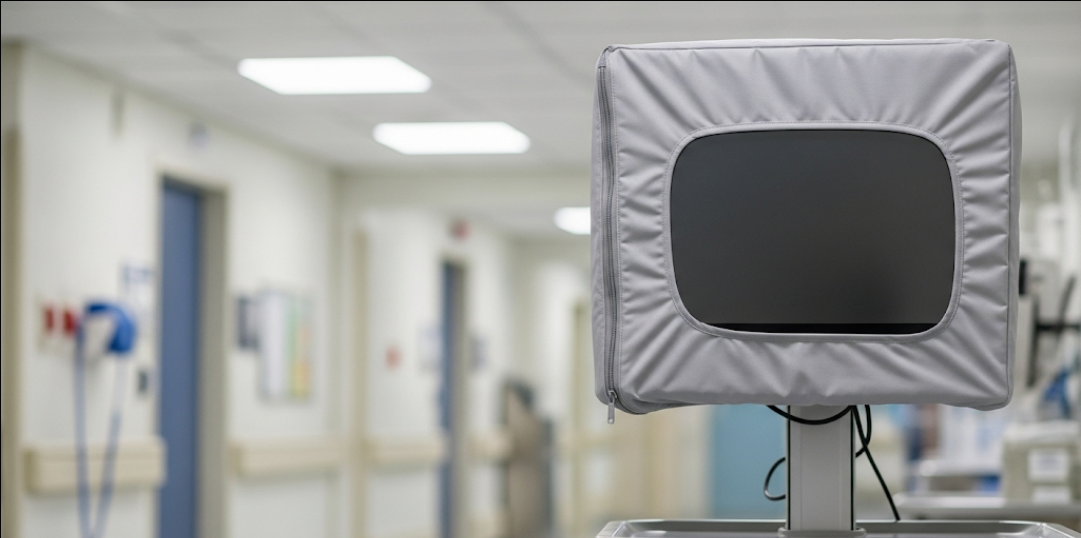In healthcare environments, even the smallest details determine patient safety, infection control, and regulatory compliance. The humble zipper—used in hospital mattresses, medical cushions, and equipment covers—directly impacts hygiene, ease of use, and durability. When a zipper fails in a hospital setting, the consequences are far greater than inconvenience. It can compromise patient care, expose staff to risk, or force costly replacements.
For medical OEMs, hospital procurement teams, and healthcare bedding manufacturers, specifying the right zipper is critical. At LenZip, a U.S.-owned zipper manufacturer trusted since 1946, we engineer custom medical zippers designed to withstand repeated laundering, sterilization, and daily clinical use. From antimicrobial hospital mattress zippers to fluid-resistant equipment cover zippers, our solutions ensure safety, hygiene, and long-term reliability.
Why Zipper Quality Matters in Healthcare
Zippers in healthcare products aren’t just closures—they are performance-critical components. A poor-quality zipper can undermine infection control efforts, shorten product life, or even create regulatory noncompliance.
Reliability and Durability
Hospital mattresses, cushions, and equipment covers endure daily cycles of use and cleaning. Durable zippers for medical bedding resist tearing, misalignment, and slider failure, ensuring consistent operation throughout the product’s service life.
Hygiene and Infection Control
Antimicrobial zippers block microbial growth along the closure track, helping hospitals reduce pathogen transmission. Smooth tapes and accessible sliders simplify disinfection, ensuring staff can thoroughly clean high-touch surfaces.
Compliance and Safety
Healthcare zippers must meet NFPA fire safety, FDA standards, and CE regulations. In critical care, fluid-resistant zippers act as barriers against spills and contaminants, protecting patients and equipment.
Ease of Use
Hospital staff need products that work quickly and reliably. Easy-access zippers on hospital mattresses and protective covers reduce strain, streamline linen changes, and improve clinical workflows in high-pressure environments.
Applications for Healthcare Zippers
Healthcare zipper applications extend far beyond mattresses. They are integrated across a wide range of medical soft goods and equipment covers. Hospital mattresses rely on fluid-resistant, antimicrobial zippers to maintain hygiene during repeated use and sterilization. Cushions and positioning devices incorporate zippers for modularity and easy replacement.
Medical equipment covers—for monitors, ventilators, and diagnostic tools—depend on zippers that protect devices while allowing access for maintenance. Mobility products like wheelchair cushions and patient transfer bags use durable, abrasion-resistant zippers that withstand constant movement. In each case, the zipper’s ability to perform under stress directly supports patient safety and product longevity.

Types of Zippers in Healthcare
Different healthcare applications require different zipper technologies. Coil zippers, made from nylon or polyester spirals, provide flexibility and smooth operation on curved shapes like mattress corners and cushions. Molded-tooth zippers are abrasion-resistant and withstand aggressive cleaning agents, making them ideal for mattress protectors and medical covers.
Metal zippers, while less common in patient-contact goods, are used in protective cases and utility covers. Fire-rated zippers are essential for bedding and cushions to comply with NFPA standards. Fluid-resistant medical zippers, engineered with coated tape or sealed designs, block liquid ingress and support infection control protocols.
Increasingly, OEMs turn to custom healthcare zippers that combine multiple features: antimicrobial coatings, fluid resistance, fire safety, and color-matched tapes for brand alignment.
Performance Requirements for Healthcare OEMs
Healthcare environments impose extreme demands on every product. Zippers must perform flawlessly under daily cleaning, sterilization, and clinical use. Abrasion resistance ensures longevity despite frequent handling. Sterilization compatibility allows zippers to endure exposure to hospital-grade disinfectants, laundering, or even autoclaving. Antimicrobial coatings reduce contamination risks, while fluid resistance protects both patients and equipment.
Compliance with NFPA, FDA, CE, OEKO-TEX, and REACH standards is non-negotiable, ensuring healthcare zippers meet both safety and environmental regulations. OEMs must also account for ergonomics—designing zippers that are easy to operate under stress, even with gloves.
Benefits of Custom Medical Zippers
When manufacturers specify custom zipper solutions for healthcare, they unlock decisive advantages:
- Precision fit and design alignment with custom lengths, pulls, and tapes tailored for mattresses, cushions, and equipment covers.
- Enhanced hygiene and durability with antimicrobial, fluid-resistant, and abrasion-resistant features engineered into each component.
- Regulatory compliance supported through fire-rated and FDA/CE-tested designs.
- Improved patient experience via smooth-running, snag-free zippers that reduce pressure points and support infection control.
- OEM flexibility with rapid prototyping, low MOQs, and fast scale-up for specialized healthcare products.
Why Work with a U.S.-Owned Zipper Manufacturer
Partnering with a U.S.-owned medical zipper supplier like LenZip delivers performance, compliance, and supply chain security. Domestic production means faster lead times, reliable quality control, and minimized risk of international delays. LenZip provides engineering support to ensure zippers integrate seamlessly into healthcare products, from hospital mattresses to sanitary equipment covers.
Our expertise in regulatory compliance helps OEMs navigate NFPA, FDA, CE, and OEKO-TEX requirements. With customization capabilities—including antimicrobial coatings, fluid-resistant tapes, and fire-rated zippers—LenZip supports innovation while ensuring every product is safe, hygienic, and compliant.

Maintenance & Care for Healthcare Zippers
- Clean zippers with hospital-approved disinfectants after each use to prevent contamination.
- Inspect regularly for wear, broken sliders, or misaligned teeth and replace before failure.
Future Trends in Healthcare Zippers
The next generation of medical zipper technology is being shaped by innovation and sustainability. Antimicrobial coatings are advancing to target broader pathogens, supporting infection control in post-pandemic healthcare environments. Sustainable materials, such as recyclable tapes and eco-friendly coatings, are gaining traction among hospitals focused on green initiatives.
As hospital automation and smart equipment expand, zippers may also integrate with modular healthcare systems to enable quick replacement, sterilization, and reuse. For OEMs, this means zipper technology isn’t just keeping up with healthcare demands—it’s helping to define the future of safe, hygienic, and sustainable clinical products.
Conclusion
Healthcare products are only as reliable as their weakest component—and often, that’s the zipper. When patient safety, infection control, and compliance are on the line, OEMs must specify zippers that can withstand daily use and rigorous standards.
At LenZip, we deliver custom healthcare zipper solutions engineered for durability, sanitation, and compliance. From fluid-resistant hospital mattress zippers to antimicrobial equipment cover zippers, we help OEMs build products that protect patients, support staff, and extend product life.
Contact LenZip today to request a consultation and discover how our U.S.-owned zipper solutions can support your next-generation healthcare products.
FAQ
Why do zippers matter in hospital equipment covers?
They protect expensive equipment, support infection control, and provide easy access for maintenance.
What is the best zipper for medical mattresses?
Fluid-resistant, antimicrobial coil or molded zippers provide the best blend of hygiene, durability, and comfort.
Can zippers be antimicrobial?
Yes. Antimicrobial zippers for healthcare use specialized coatings or materials that inhibit bacteria and fungi.
Are fluid-resistant zippers required in healthcare?
While not always mandated, fluid-resistant zippers significantly reduce contamination risks and extend product lifespan.
Why choose a U.S.-owned zipper manufacturer for healthcare products?
Domestic suppliers like LenZip ensure reliable compliance, shorter lead times, and proven engineering expertise for OEMs.
